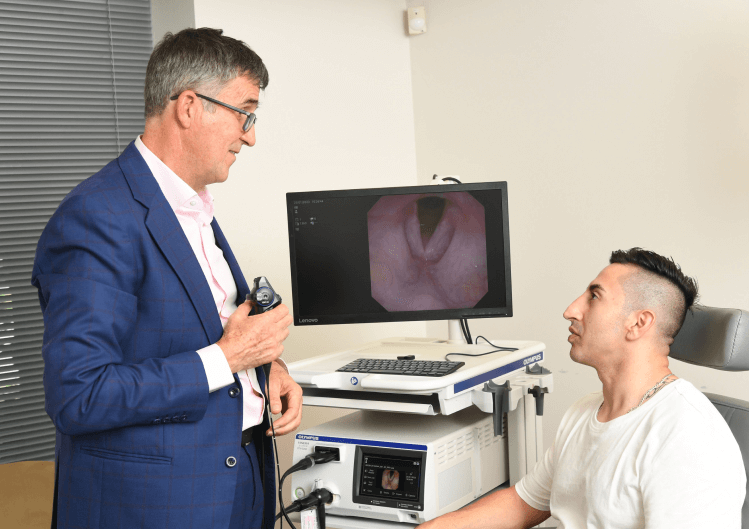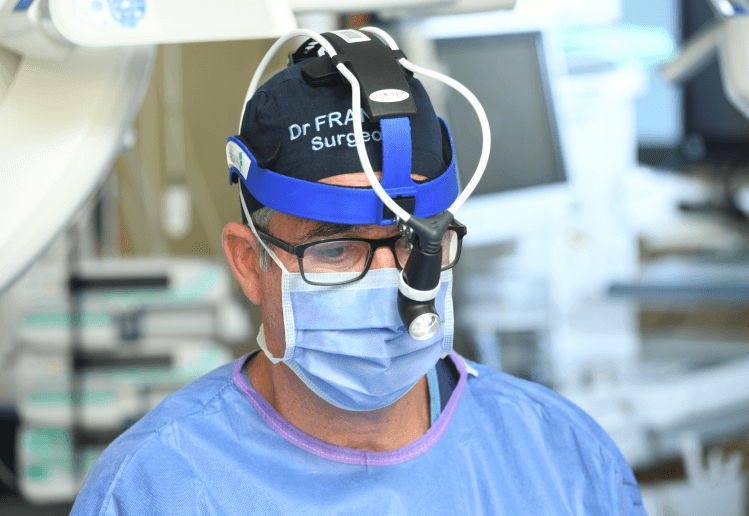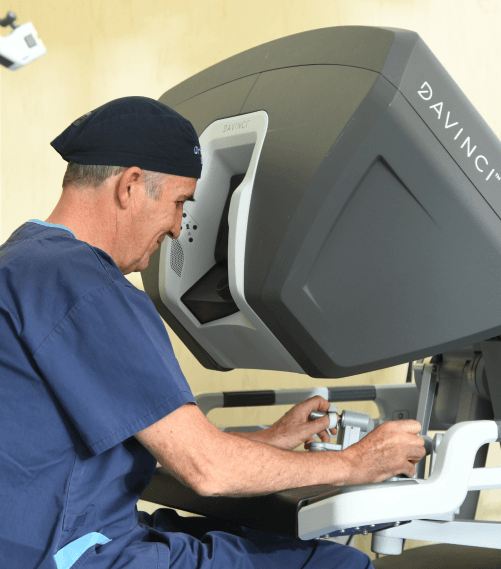The treatment of head and neck cancer depends on the location of the cancer and if it has spread. Treatments are often carried out by a head and neck surgical oncology specialist. If there is an obvious lump, an ultrasound guided biopsy (FNA) is conducted to help differentiate between benign (non cancerous) lumps and malignant (cancerous) lumps. A biopsy is a minor procedure, which uses a thin needle to obtain cells from a lump which is then sent to a laboratory for testing. If the results show that the lump is cancerous, head and neck surgery may be required and is often combined with radiation and/or chemotherapy.
All patients with head and neck cancer benefit from a thorough assessment including a detailed history and thorough examination including flexible endoscopy if required. Investigations such as ultrasound, ultrasound guided FNA, CT scan, MRI scan and PET CT scan may be performed. Once all the information is obtained, Dr Hall presents the information to the head and neck MDM (multidisciplinary meeting). The MDM is attended by radiologists, pathologists, surgeons, radiation oncologists and medical oncologists. All the investigations are reviewed and recommendations for treatment are made.
If surgery is recommended this usually involves both excision of the primary site of the cancer (for example the tonsil or a part of the tongue) and removal of lymph nodes from the neck on the same side. Please see the relevant sections on the website for details for each cancer. (thyroid, parotid, submandibular gland, throat cancer, TORS, cancer of the mouth, neck dissection, head and neck skin cancer).
Procedures such as neck surgery (dissection) is a common treatment to remove any cancerous cells found in the neck. This procedure consists of removing a group of lymph nodes in the neck. The lymph nodes in the neck are arranged in 6 areas called levels. Depending on the severity of your cancer condition, the surgery can either be comprehensive (lymph nodes from level 1-5 removed) or selective (the nodes from some of the levels are removed).
A neck dissection may either be:
1. Therapeutic – in situations where it is already known that there is cancer in one or more lymph nodes
2. Elective – where it is unknown if there is cancer in any of the lymph nodes. In this case the neck surgery is performed because there is a high chance that there is cancer in one or more lymph nodes. Elective neck surgery is performed as a form of precaution as small, microscopic deposits of cancer in a lymph node cannot be detected by scans.




